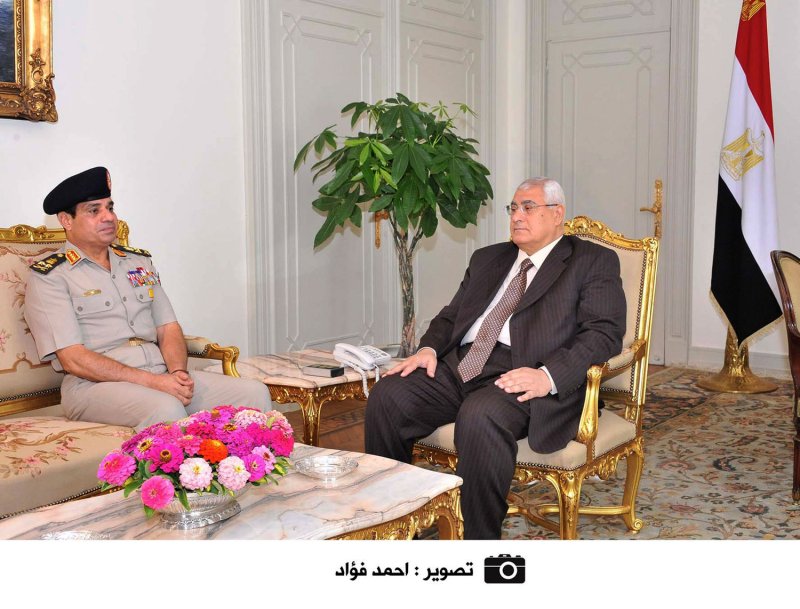In this official handout from the Egyptian Presidency Office, Egyptian Minister of Defense Defense Minister Abdel Fattah al-Sisi (L) meets with interim president Adly Mansour at the presidential palace in Cairo in Egypt, July 6, 2013. UPI |
License Photo
CAIRO, March 7 (UPI) -- Egypt's newly-appointed cabinet has passed a law to regulate the country's upcoming presidential polls, officials said.
Before the 59-article piece of legislation goes into effect, it must be signed by interim President Adly Mansour, Ahram Online reported Friday.
Ali Awad, Mansour's legal and constitutional affairs adviser, said Thursday a press conference will be held to reveal the details of the draft of the new presidential election law.
Should Mansour ratify the bill, it will then be implemented by the Presidential Election Commission -- a five-member judicial board that will supervise the presidential polls.
A major dispute among cabinet members on the legislation was over whether presidential candidates should be allowed to appeal the PEC's decision following the election, officials said.
"While the majority of the department's judges concluded that making PEC's decisions immune to appeals violates the new constitution, and that appeals in presidential elections should be allowed, even if under strict conditions, some other judges, including Farid Tanaghou, chairman of the State Council to which the Department of Fatwas is affiliated, sided with Mansour's legal team which rejected appeals in presidential elections," said Magdi El-Agati, chairman of the State Council's Department of Fatwas and Legislation.
The cabinet put forth two versions of the article concerning appeals to the PEC -- one banning appeals and one allowing them under strict conditions.















